Jail-like facility. No phone calls, no visits, it only worsens your mental health.
About CASPAR – Highland Avenue
CASPAR – Highland Avenue is a substance use disorder and co-occurring mental health recovery program for adult men. Located in Somerville, Massachusetts, between the Charles and Mystic rivers, this residential program offers a place where men can recover together in a like-minded and safe community under the care of professional staff. They incorporate the 12 Steps model into their treatment.
In addition to a separate residence for adult women, CASPAR hosts another program for prenatal women and new mothers called New Day. It too is a residential program but differs in that it further individualizes care to meet pregnancy needs and the needs of newborns.
Building a Foundation for Long-Term Recovery
No SUD program can “cure” you because recovery is something you do every day; it’s a lifelong process reflected in your actions and behaviors. What treatment does is show you how to change those behaviors to better resist relapse.
However, recovery looks different for everyone, which is why this program incorporates so many methods and approaches into treatment. When you first sit down with your care team to assess your needs, you’ll team up to lay the groundwork for an individualized plan specific to your needs.
Finding Strength in the Community
Of course, you’ll be making this journey alongside the other men in the residence, but this program also sees you reaching out and joining local support groups. You’ll be attending these off-site meetings on top of the individual and group sessions you have in the home. It’s a great introduction to a resource you can rely on long after you exit the program.
Ready for Work
If you’re one of those who have lost their job as a consequence of drug or alcohol addiction, this facility can help. Steady employment is a pillar of relapse prevention and independent living, so job readiness is incorporated into your treatment plan. You’ll have the chance to sharpen key skills to appeal to employers and begin a new career as you start a new life.
Facility Overview
Latest Reviews
Rehab Score
Gallery
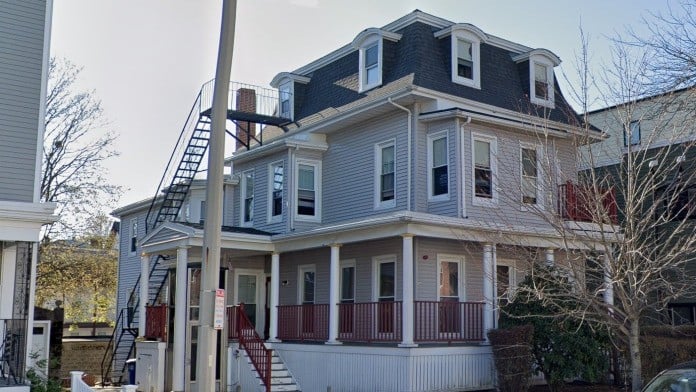

Accepted Insurance
Other Forms of Payment
Private insurance refers to any kind of healthcare coverage that isn't from the state or federal government. This includes individual and family plans offered by an employer or purchased from the Insurance Marketplace. Every plan will have different requirements and out of pocket costs so be sure to get the full details before you start treatment.
Self-pay involves paying for treatment out of your own pocket. You can use savings or credit, get a personal loan, or receive help from family and friends to fund your treatment. If you don't have insurance or your insurance plan doesn't cover a specific program, self-pay can help ensure you still get the care you need.
Financial aid can take many forms. Centers may have grants or scholarships available to clients who meet eligibility requirements. Programs that receive SAMHSA grants may have financial aid available for those who need treatment as well. Grants and scholarships can help you pai for treatment without having to repay.
Medicaid is a state based program that helps lower-income individuals and families pay for healthcare. Medicaid covers addiction treatment so those enrolled can use their coverage to pay for rehab. When a program accepts Medicaid the client often pays very little or nothing out of their own pocket.
Medicare is a federal program that provides health insurance for those 65 and older. It also serves people under 65 with chronic and disabling health challenges. To use Medicare for addiction treatment you need to find a program that accepts Medicare and is in network with your plan. Out of pocket costs and preauthorization requirements vary, so always check with your provider.
Addiction Treatments
Levels of Care
Residential treatment programs are those that offer housing and meals in addition to substance abuse treatment. Rehab facilities that offer residential treatment allow patients to focus solely on recovery, in an environment totally separate from their lives. Some rehab centers specialize in short-term residential treatment (a few days to a week or two), while others solely provide treatment on a long-term basis (several weeks to months). Some offer both, and tailor treatment to the patient's individual requirements.
Sober Living Houses (SLHs), aka sober homes or halfway houses, are safe, substance-free, supportive living facilities for those recovering from substance abuse. Ideal for those who've just been through inpatient or outpatient treatment, SLHs are supervised environments with rules that support sobriety, such as curfews, shared chores, and therapeutic meetings. Residents are also often trained on life skills and coping skills to make it easier to transition into society. SLHs also provide a strong sense of community that can lead to the kind of deep and lasting connections with other sober individuals that supports a new, healthy lifestyle.
12-step programs are addiction recovery models based on Alcoholics Anonymous (AA). A number of substance abuse programs (including some drug and alcohol rehab centers) use the 12 steps as a basis for treatment. Beginning steps involve admitting powerlessness over the addiction and creating a spiritual basis for recovery. Middle steps including making direct amends to those who've been hurt by the addiction, and the final step is to assist others in addiction recovery in the same way. 12-Step offshoots including Narcotics Anonymous (NA), Cocaine Anonymous (CA), Dual Recovery Anonymous (DRA), Sex and Love Addicts Anonymous (SLAA) and Gamblers Anonymous (GA).
Completing a drug or alcohol rehab program shouldn't spell the end of substance abuse treatment. Aftercare involves making a sustainable plan for recovery, including ongoing support. This can include sober living arrangements like halfway houses, career counseling, and setting a patient up with community programs like Alcoholics Anonymous (AA) or Narcotics Anonymous (NA).
Treatments
The goal of treatment for alcoholism is abstinence. Those with poor social support, poor motivation, or psychiatric disorders tend to relapse within a few years of treatment. For these people, success is measured by longer periods of abstinence, reduced use of alcohol, better health, and improved social functioning. Recovery and Maintenance are usually based on 12 step programs and AA meetings.
Addiction is a highly complex problem, and drug rehab in Massachusetts is often necessary to address it. These programs treat physical, mental, and relational issues that are involved. Treatment empowers individuals to manage these issues without the use of drugs.
Opioid rehabs specialize in supporting those recovering from opioid addiction. They treat those suffering from addiction to illegal opioids like heroin, as well as prescription drugs like oxycodone. These centers typically combine both physical as well as mental and emotional support to help stop addiction. Physical support often includes medical detox and subsequent medical support (including medication), and mental support includes in-depth therapy to address the underlying causes of addiction.
Substance rehabs focus on helping individuals recover from substance abuse, including alcohol and drug addiction (both illegal and prescription drugs). They often include the opportunity to engage in both individual as well as group therapy.
Programs
Adult rehab programs include therapies tailored to each client's specific needs, goals, and recovery progress. They are tailored to the specific challenges adult clients may face, including family and work pressures and commitments. From inpatient and residential treatment to various levels of outpatient services, there are many options available. Some facilities also help adults work through co-occurring conditions, like anxiety, that can accompany addiction.
Clinical Services
Group therapy is any therapeutic work that happens in a group (not one-on-one). There are a number of different group therapy modalities, including support groups, experiential therapy, psycho-education, and more. Group therapy involves treatment as well as processing interaction between group members.
In individual therapy, a patient meets one-on-one with a trained psychologist or counselor. Therapy is a pivotal part of effective substance abuse treatment, as it often covers root causes of addiction, including challenges faced by the patient in their social, family, and work/school life.
Life skills trainings involve all the skills a person must have in order to function successfully in the world. These include time management, career guidance, money management, and effective communication. Truly successful addiction recovery is based on the ability to not only live substance-free, but to thrive. Life skills teaches the practical necessities of functioning in society, which sets clients up for success in life, and therefore sobriety.
Motivational Interviewing (MI) is a clinical approach to helping people with substance abuse issues and other conditions shift behavior in positive ways. It is more goal-oriented than traditional psychotherapy, as MI counselors directly attempt to get clients to consider making behavioral change (rather than wait for them to come to conclusions themselves). Its primary purpose is to resolve ambivalence and help clients become able to make healthy choices freely.
Amenities
-
Residential Setting
-
Private Setting
Staff

Bill Sprague
Interim CEO

Kevin Costello
VP, Financial Operations & Compliance
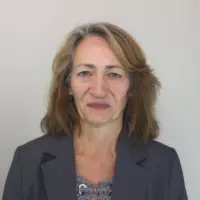
Kelly LaCava
Senior VP & Chief Administrative Officer/Chief Information Officer

Carley Lubarsky
Senior VP & Chief Operating Officer

Marcel Vernon, Sr.
Senior VP of Finance & Chief Financial Officer
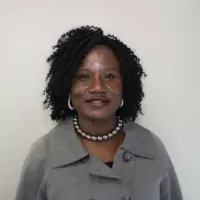
Adeola Adejinmi
Chief Nursing Officer

Kevin Kerr
VP & General Counsel
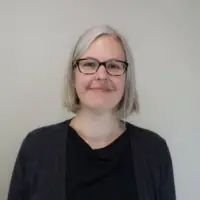
Sarah Coombs
VP of Addiction Services

Mary Jo Cooper
VP of Developmental Services

Dr. Robert Diener
Chief Medical Officer

Andy Dusenbery
VP of IS Operations and Security

Kevin Costello
VP, Financial Operations & Compliance
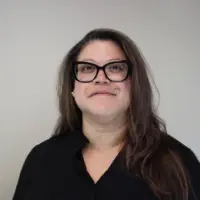
Lisa Morishanti
VP of Mental Health Community Services

Michael O’Neill
VP of Central Services
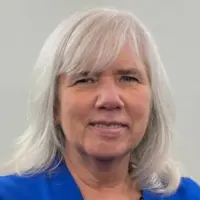
Diane Santoro
VP Behavioral Health Integration

Arlene Fortunato
Chief Development Officer

Anne Rush
Interim Chief Human Resources Officer
Contact Information
16 Highland Avenue
Somerville, MA 02143

